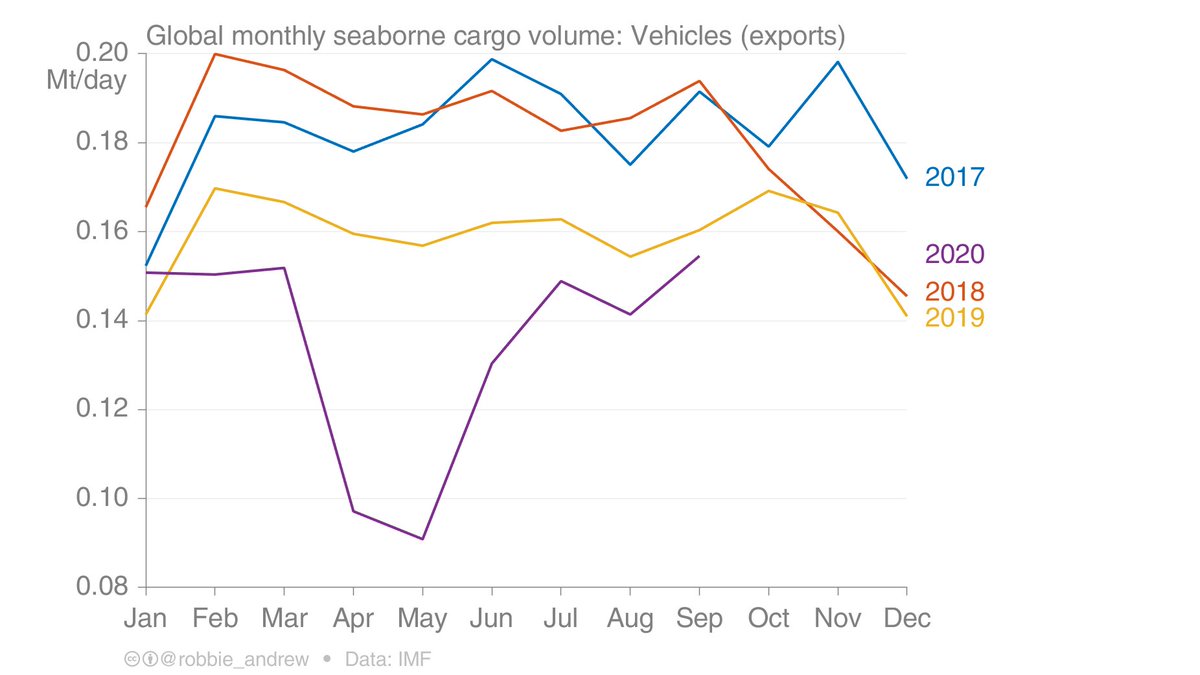
Senior scientist at 🇳🇴CICERO Center for International Climate Research (@CICERO_klima) • 🌍Global Carbon Project (@gcarbonproject). More active on the other.
How to get URL link on X (Twitter) App

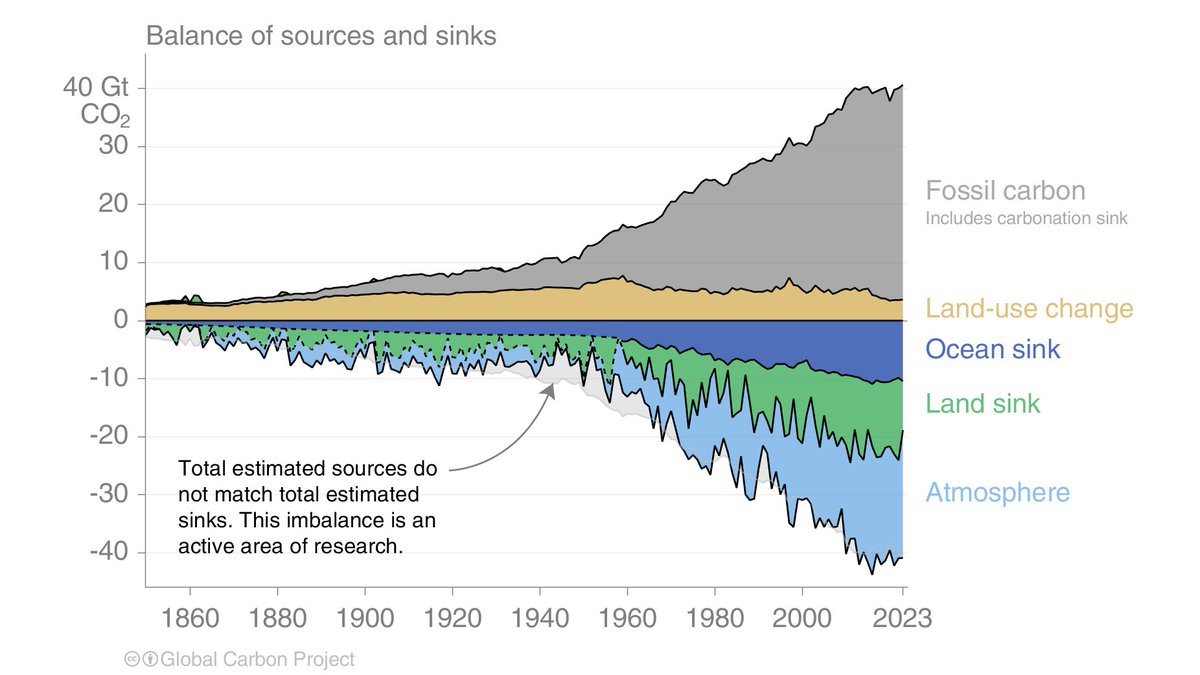
 The numbers that make the headlines are what is happening this year. It looks like fossil CO₂ emissions will increase by about 0.8%, but that obviously comes with quite a lot of uncertainty as a lot can happen in the final months of the year, and data are far from complete. 2/
The numbers that make the headlines are what is happening this year. It looks like fossil CO₂ emissions will increase by about 0.8%, but that obviously comes with quite a lot of uncertainty as a lot can happen in the final months of the year, and data are far from complete. 2/ 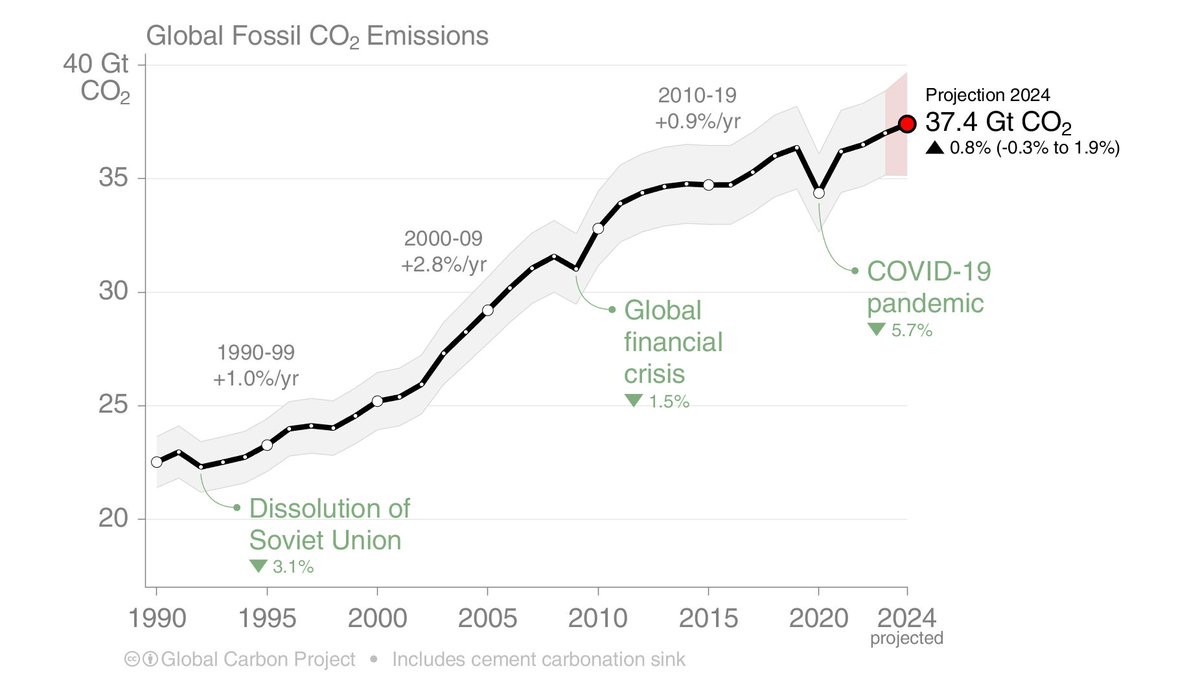
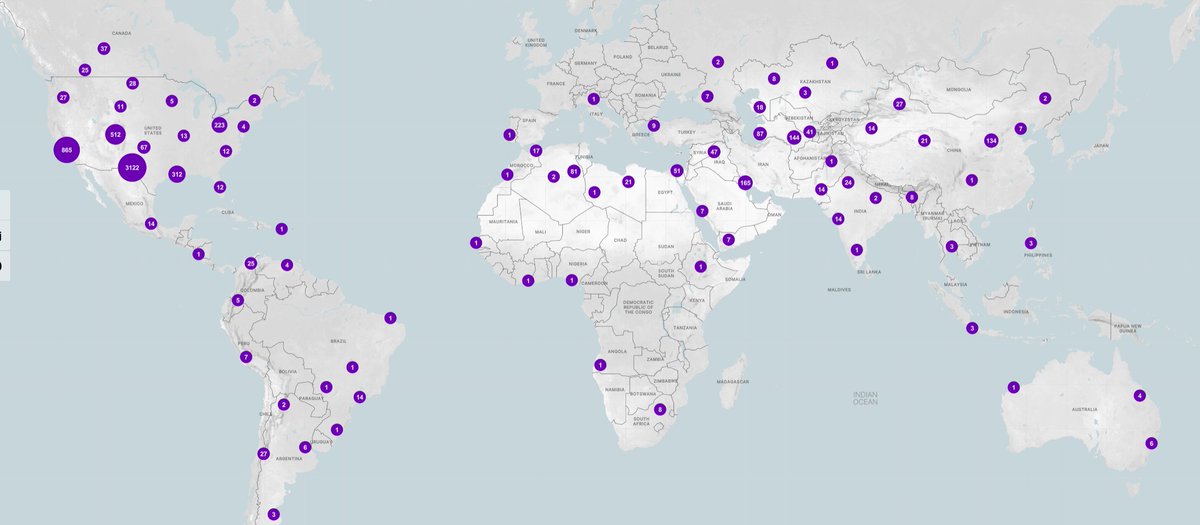
 There are a lot of sources in Texas and New Mexico. Zoom in to see them in groups, zoom in further to see individual sources. 2/3
There are a lot of sources in Texas and New Mexico. Zoom in to see them in groups, zoom in further to see individual sources. 2/3 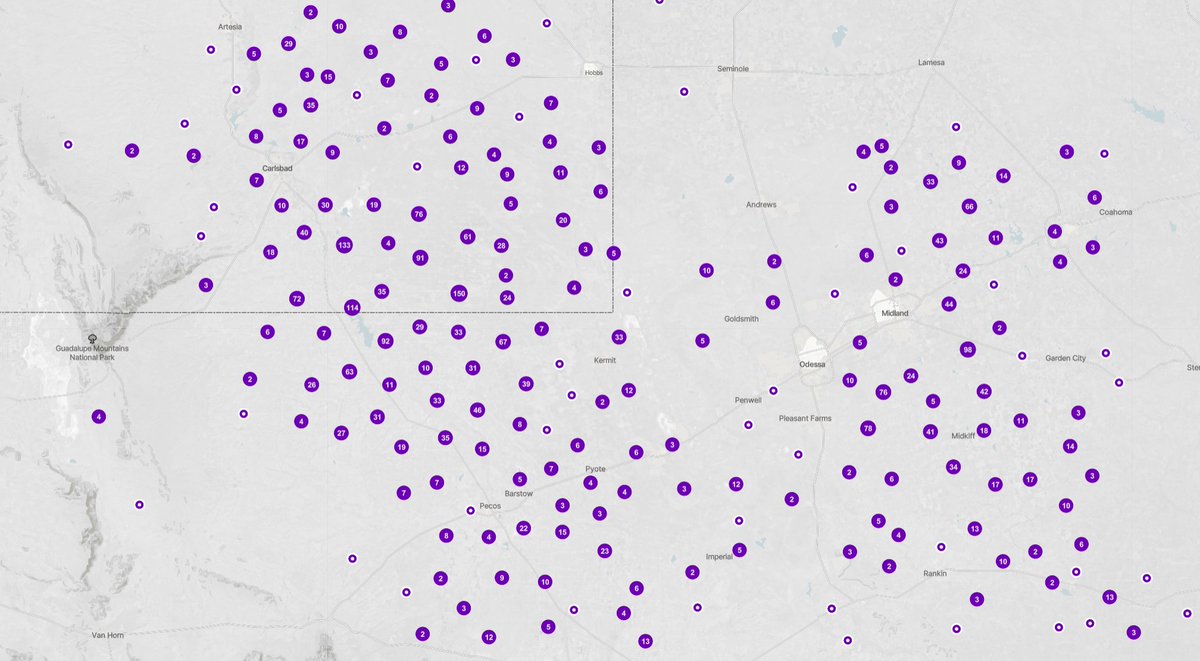
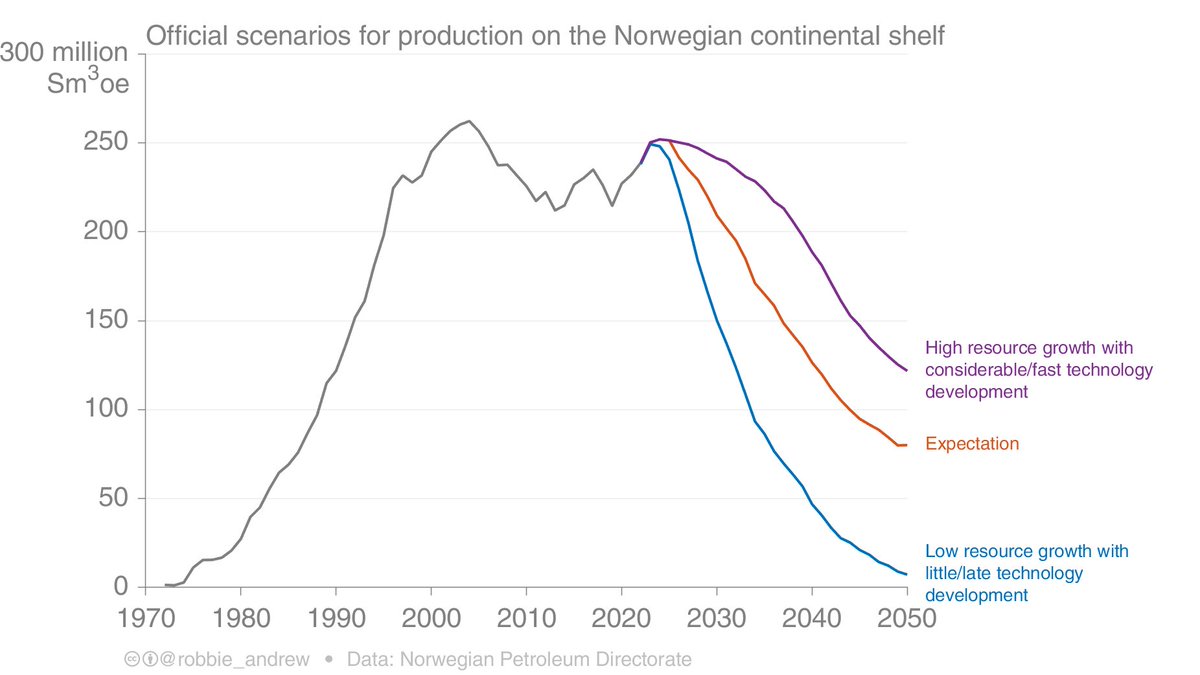
 In their report the Directorate says:
In their report the Directorate says:
 But note: I'm not here to say CT is *wrong*. This is just one example.
But note: I'm not here to say CT is *wrong*. This is just one example.
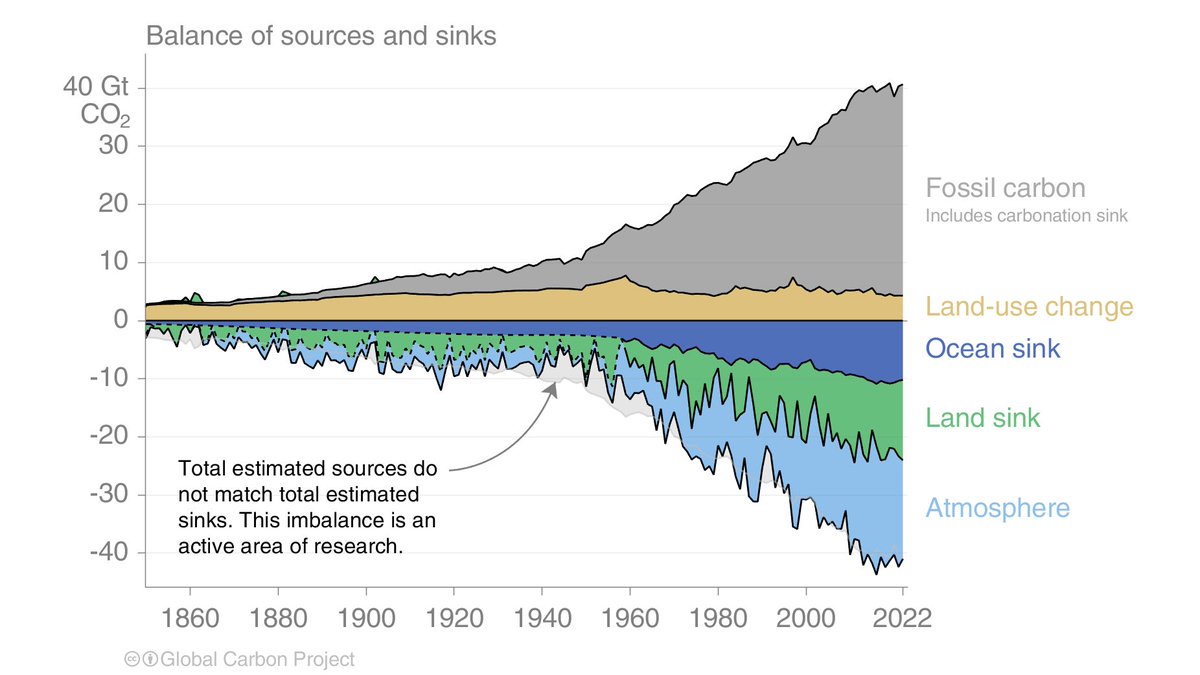
 The numbers that make the headlines are what is happening this year. It looks like fossil CO₂ emissions will increase by about 1%, but that obviously comes with quite a lot of uncertainty as a lot can happen in the final months of the year, and data are far from complete. 2/
The numbers that make the headlines are what is happening this year. It looks like fossil CO₂ emissions will increase by about 1%, but that obviously comes with quite a lot of uncertainty as a lot can happen in the final months of the year, and data are far from complete. 2/ 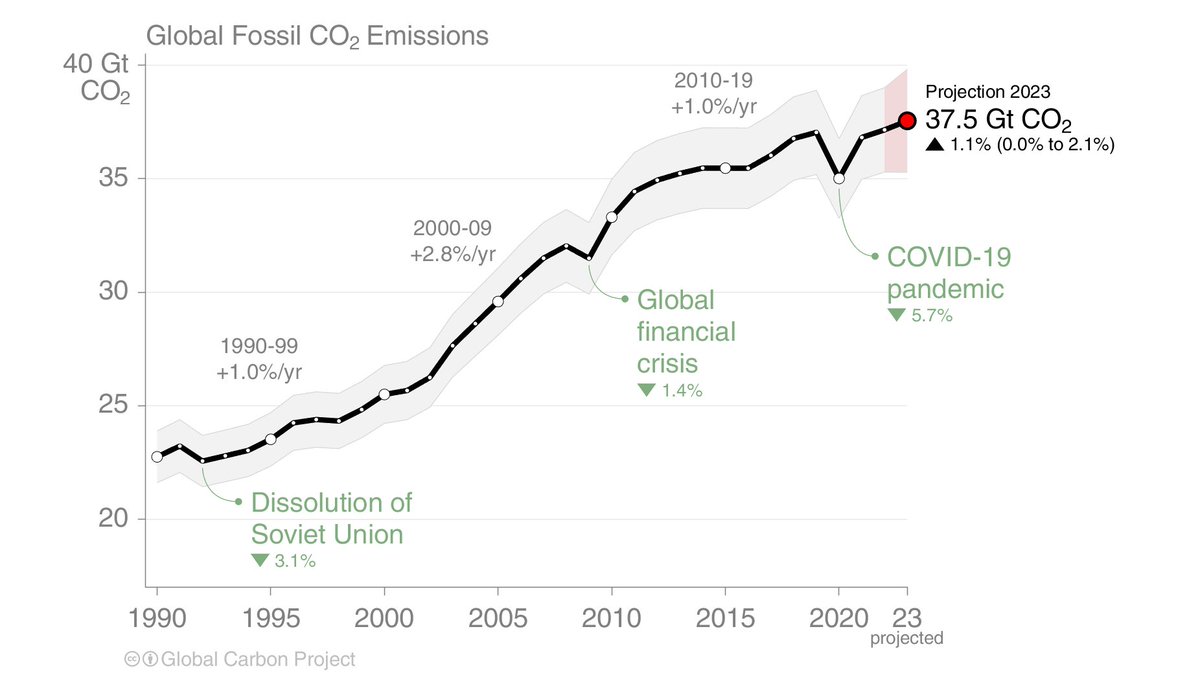
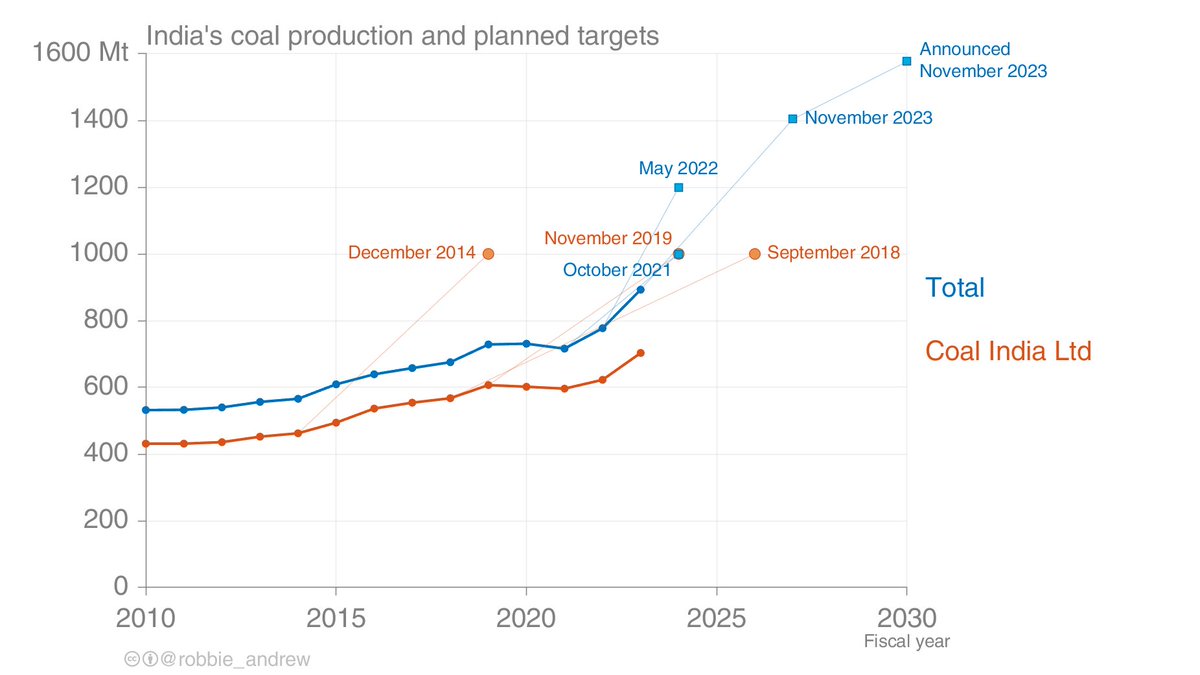
 Previous targets always appeared to be based on the maxim "Past performance is not indicative of future results", although in the opposite way to its usual usage: that while growth had previously been sluggish, it was surely about to take off. Set a target, and it will happen.
Previous targets always appeared to be based on the maxim "Past performance is not indicative of future results", although in the opposite way to its usual usage: that while growth had previously been sluggish, it was surely about to take off. Set a target, and it will happen.
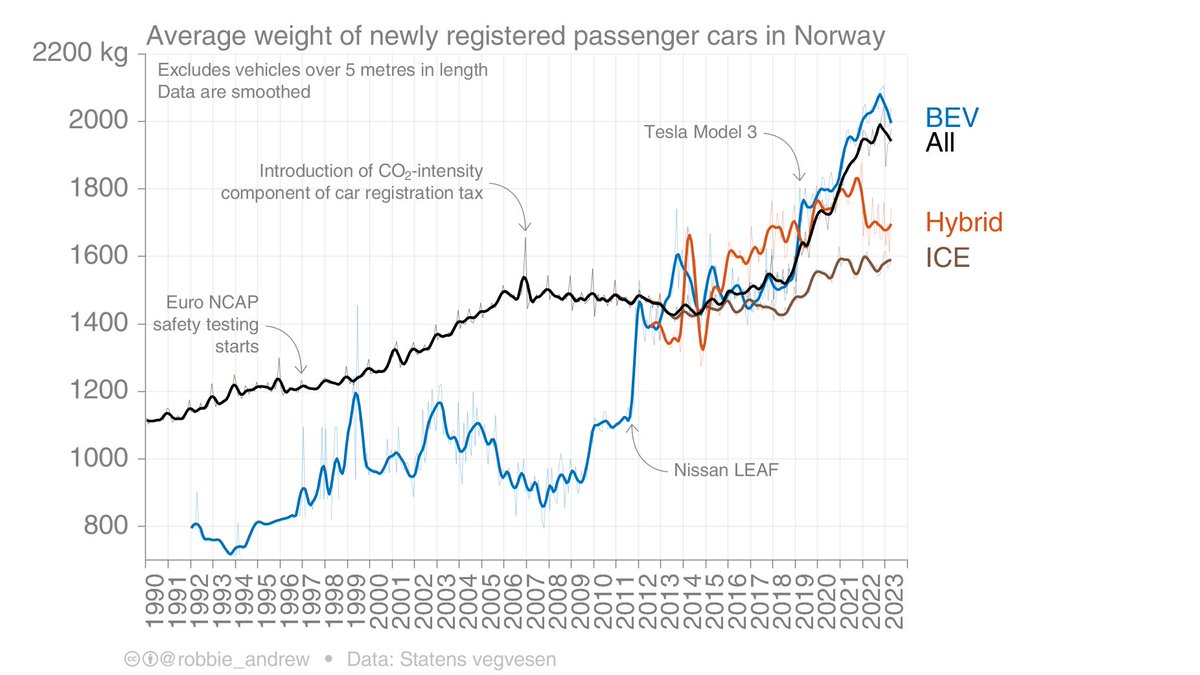
https://twitter.com/robbie_andrew/status/1662439770725728259The CO₂-intensity component of the car registration tax, introduced in January 2007, introduced a counter-balancing driver.

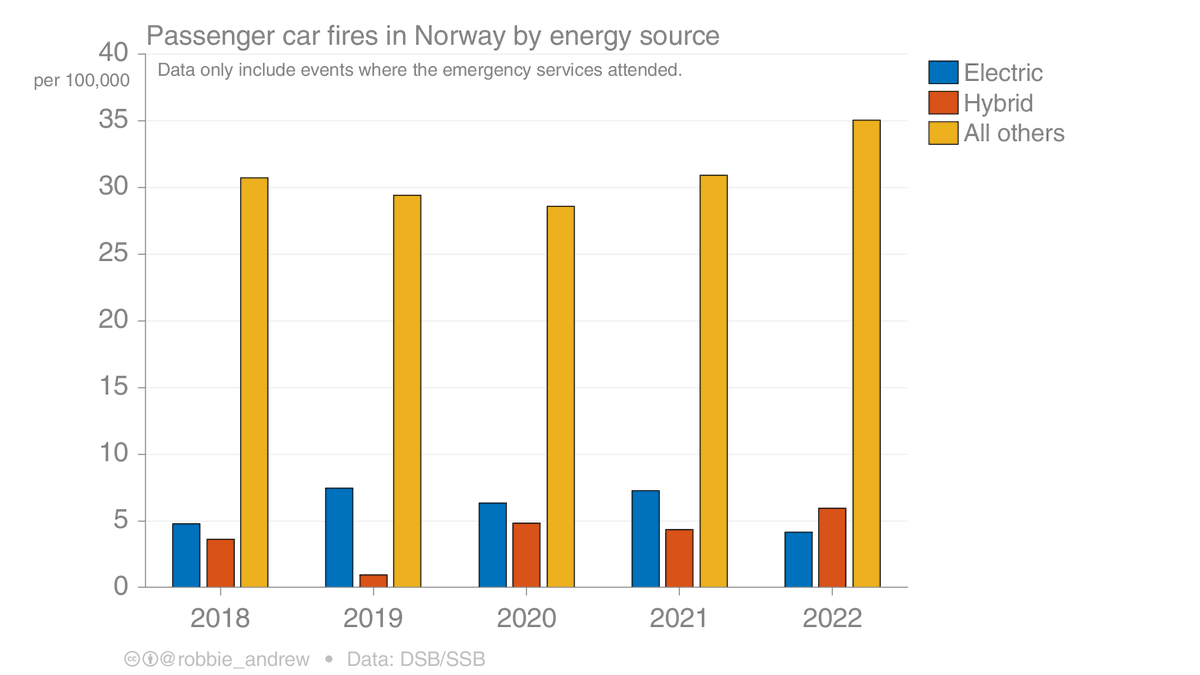
 The Norwegian fire service has developed routines for handling battery fires in EVs. But they say that it's rare for the battery to be damaged sufficiently to lead to fire. "The battery pack is the strongest part of the car."
The Norwegian fire service has developed routines for handling battery fires in EVs. But they say that it's rare for the battery to be damaged sufficiently to lead to fire. "The battery pack is the strongest part of the car."

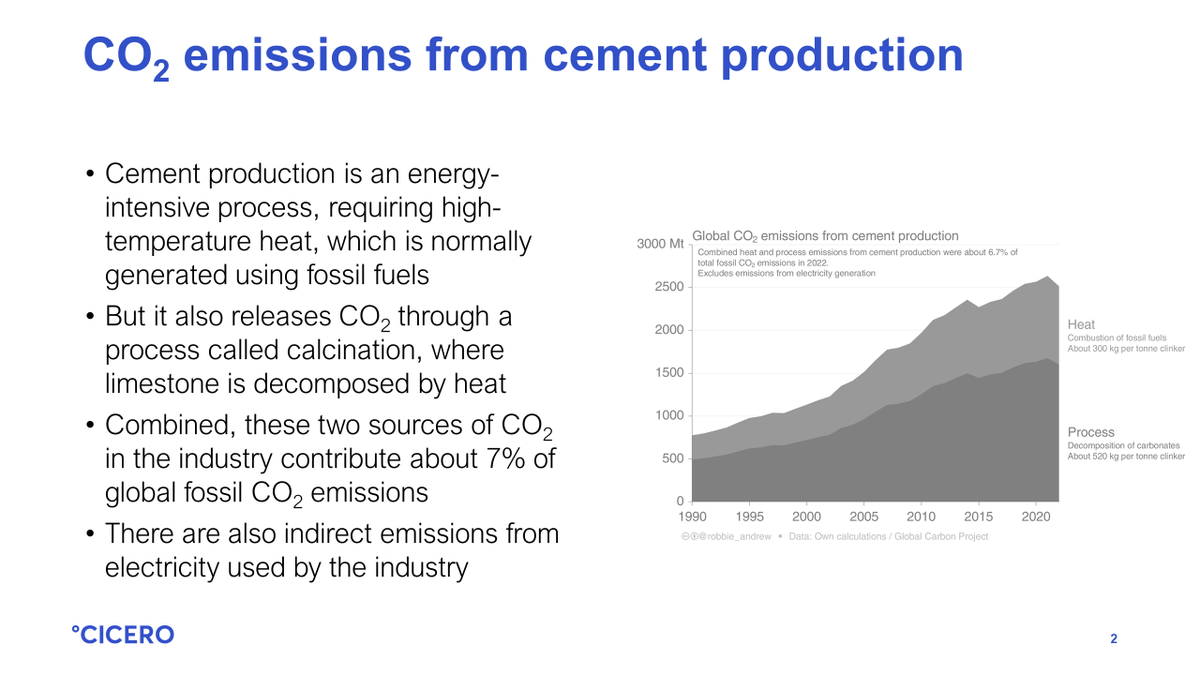
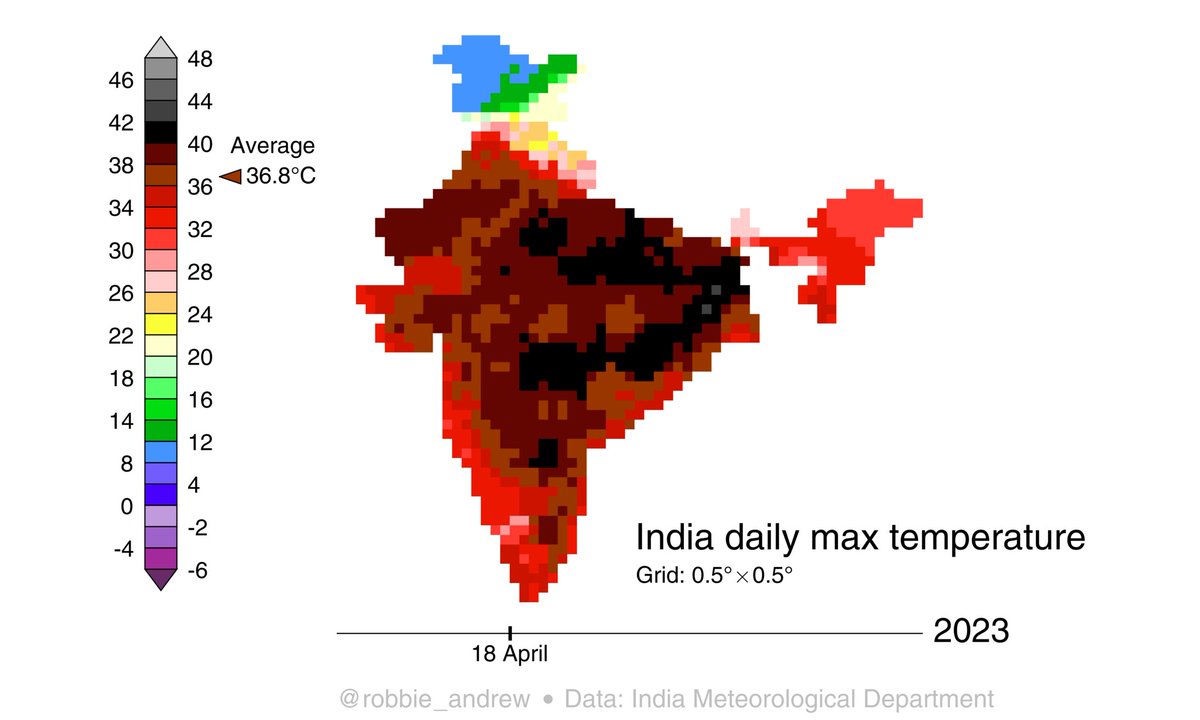
 The alarm was raised already in February, when that month broke records going back over 100 years. India's weather office at that time announced that India was likely to experience heat waves between March and May.
The alarm was raised already in February, when that month broke records going back over 100 years. India's weather office at that time announced that India was likely to experience heat waves between March and May.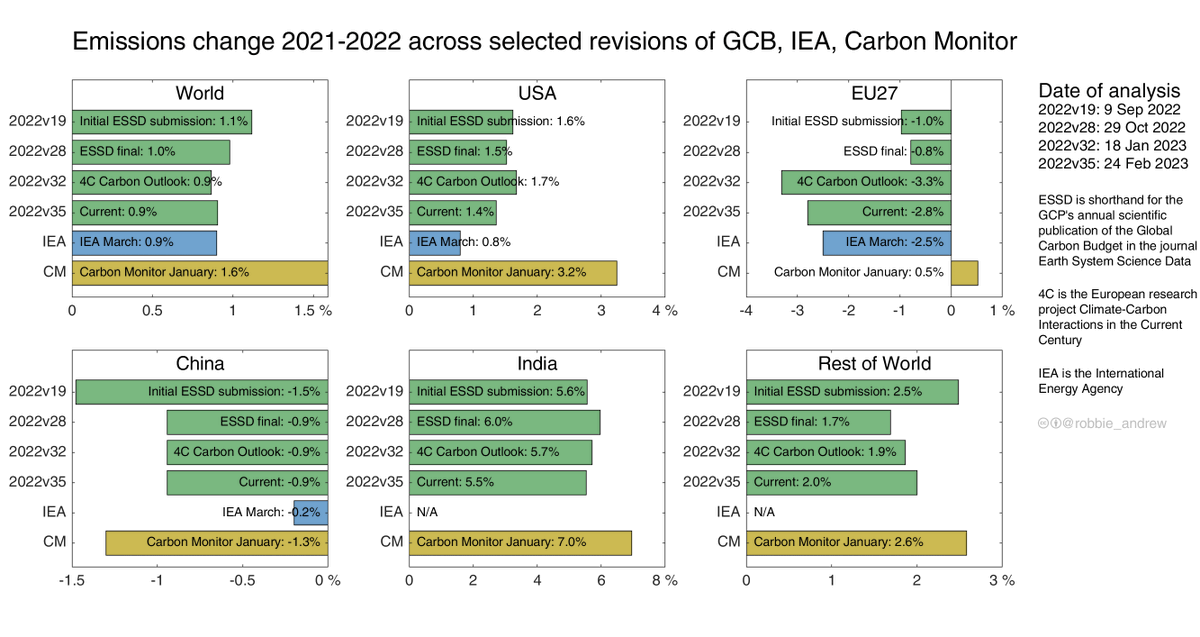
 It's interesting that IEA diverges from GCP for the US, since GCP obtains its estimates almost directly from the US Energy Information Administration, which is the agency that reports to agencies like the IEA.
It's interesting that IEA diverges from GCP for the US, since GCP obtains its estimates almost directly from the US Energy Information Administration, which is the agency that reports to agencies like the IEA. 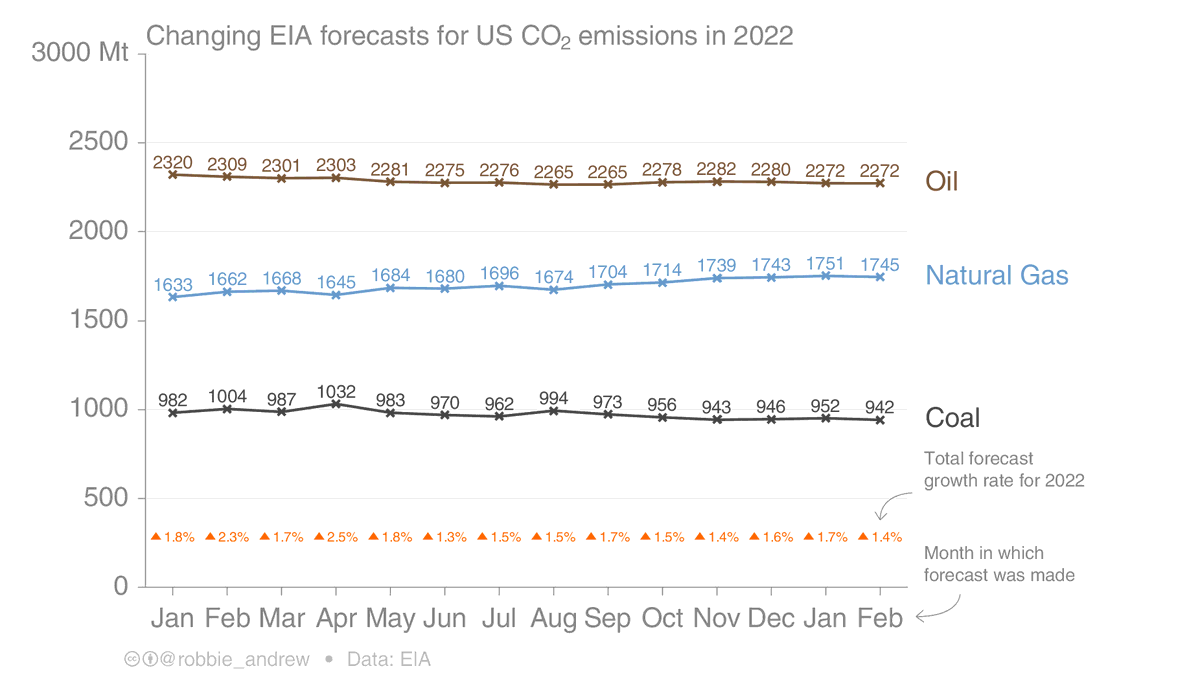
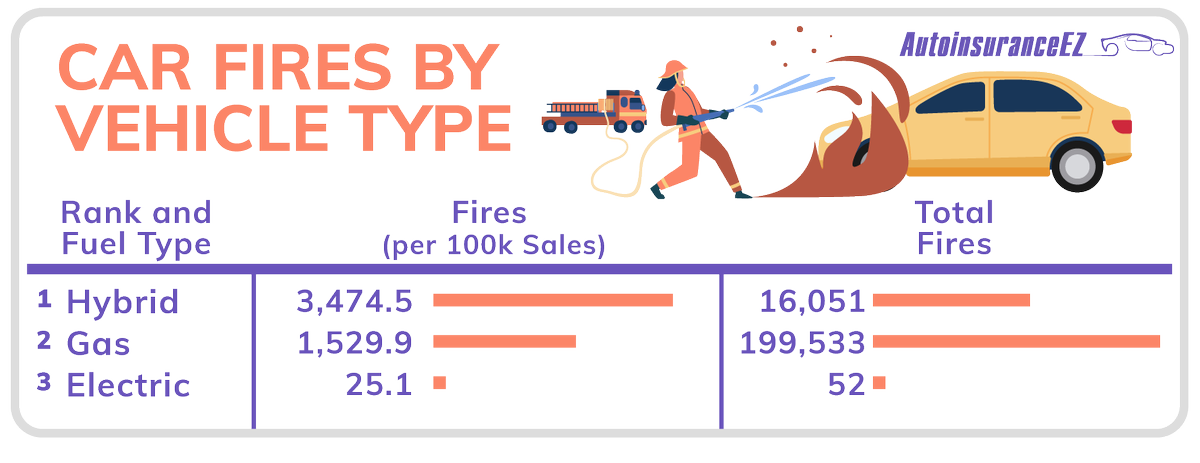
https://twitter.com/NatBullard/status/1487507206576742404First, here's a link to the original study.

 Why is this happening? Norway's hydropower dams have very low water levels after a dry summer and autumn, and electricity prices in Europe are very high. Norwegians compete for electricity on this open market, so prices on the continent affect us here.
Why is this happening? Norway's hydropower dams have very low water levels after a dry summer and autumn, and electricity prices in Europe are very high. Norwegians compete for electricity on this open market, so prices on the continent affect us here.
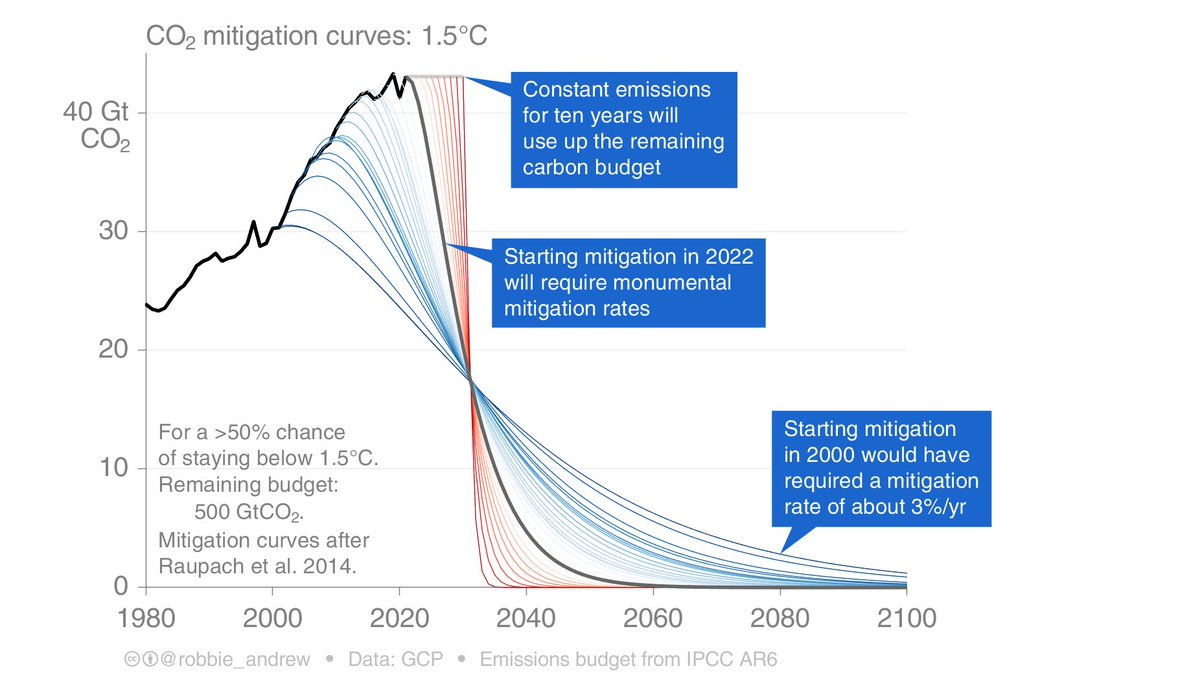
 While 1.5°C has always been a tough goal, the 2°C goal is more attainable, but still requires substantial effort from all of us. The transition is underway, but we must not slacken the pace.
While 1.5°C has always been a tough goal, the 2°C goal is more attainable, but still requires substantial effort from all of us. The transition is underway, but we must not slacken the pace. 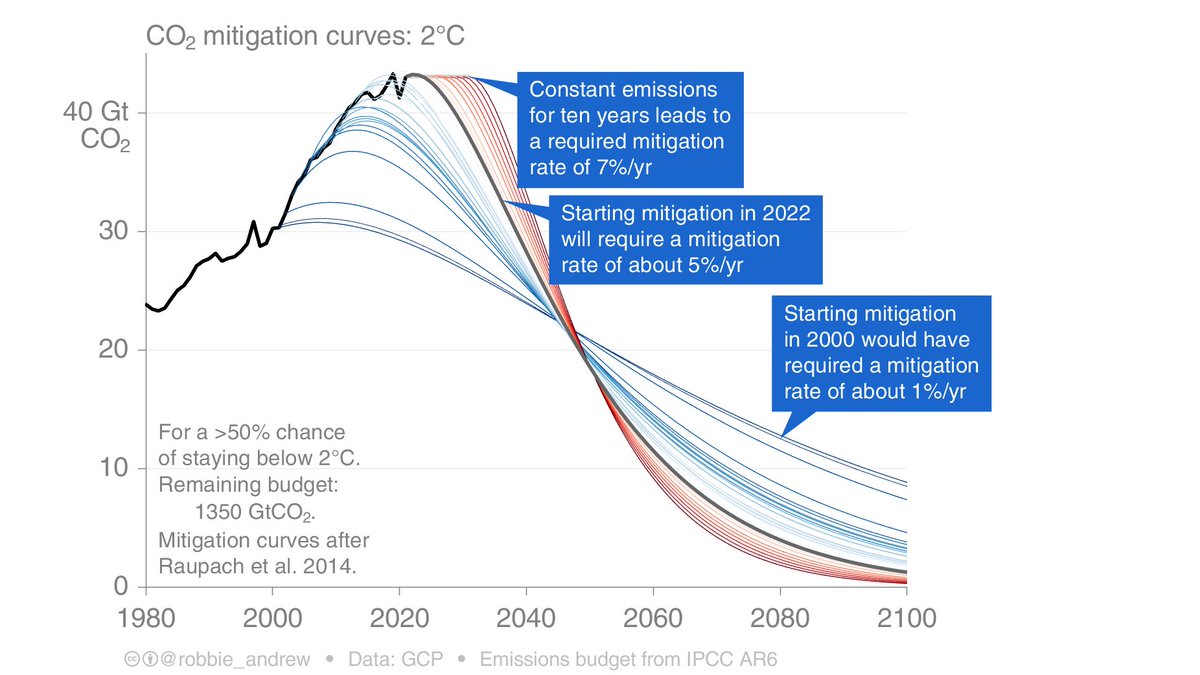
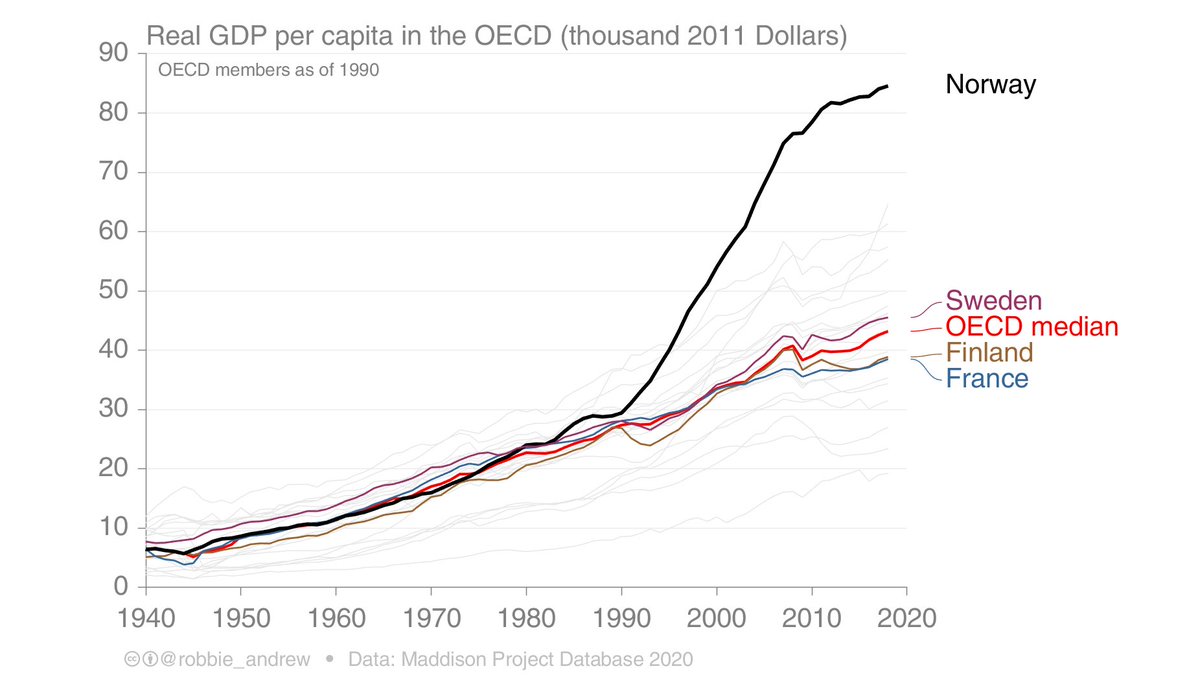
 Is it simply that Norway was not quite as rich as Sweden, which is where Norwegians always looked to?
Is it simply that Norway was not quite as rich as Sweden, which is where Norwegians always looked to?
 In 1989, two members of the group, Morten Harket and Magne Furuholmen were in Switzerland with environmentalist Frederic Hauge, when they came across a hobby-converted Fiat Panda. Stated range: 45 km. They snapped it up and imported it to Norway.
In 1989, two members of the group, Morten Harket and Magne Furuholmen were in Switzerland with environmentalist Frederic Hauge, when they came across a hobby-converted Fiat Panda. Stated range: 45 km. They snapped it up and imported it to Norway.
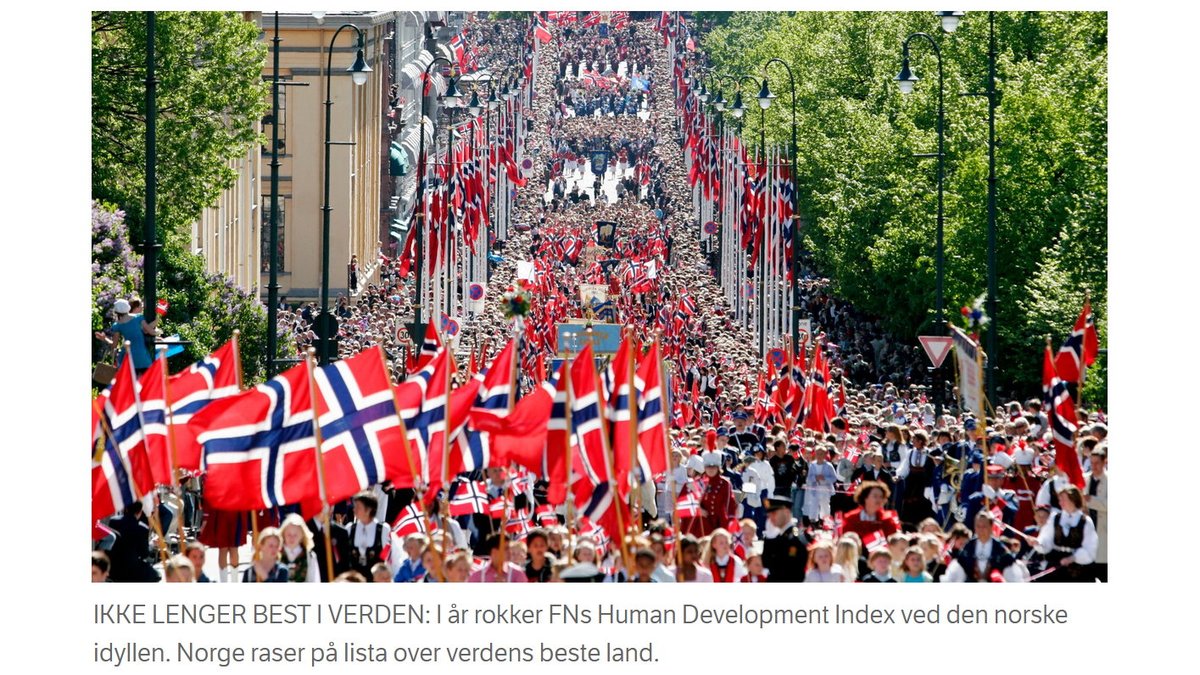
 Check out Norway's 'Domestic Material Consumption'. Fossil fuels are no different here to Ireland's. What's different is this huge 'non-metallic minerals' category.
Check out Norway's 'Domestic Material Consumption'. Fossil fuels are no different here to Ireland's. What's different is this huge 'non-metallic minerals' category. 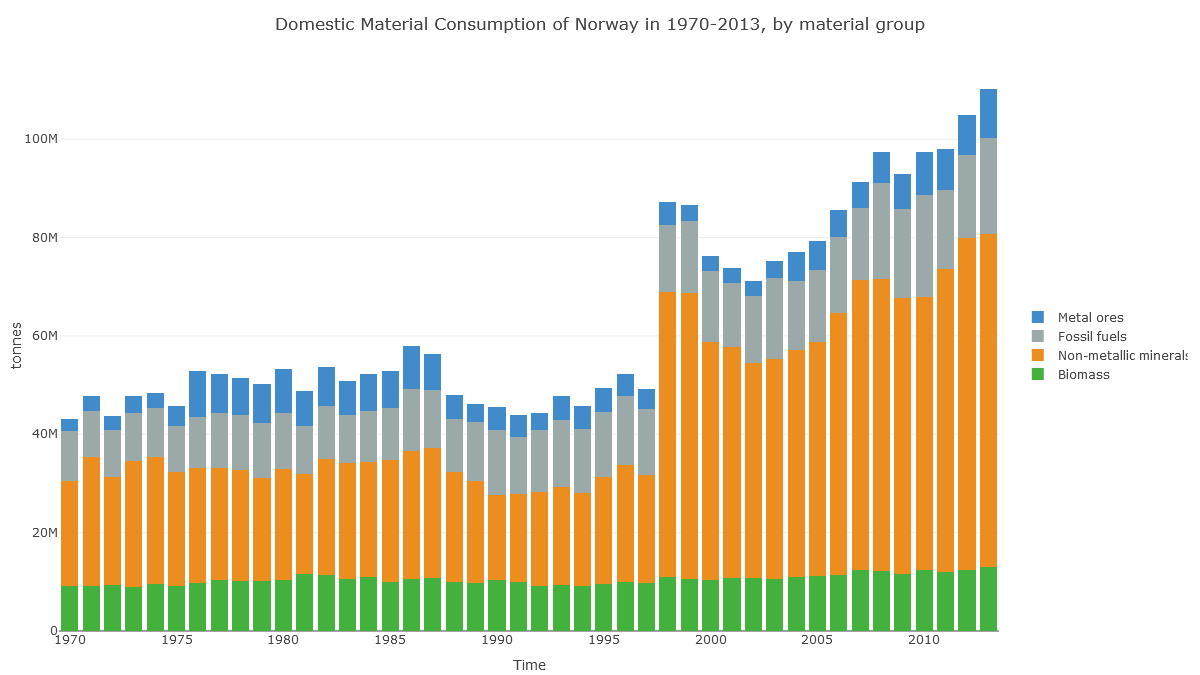
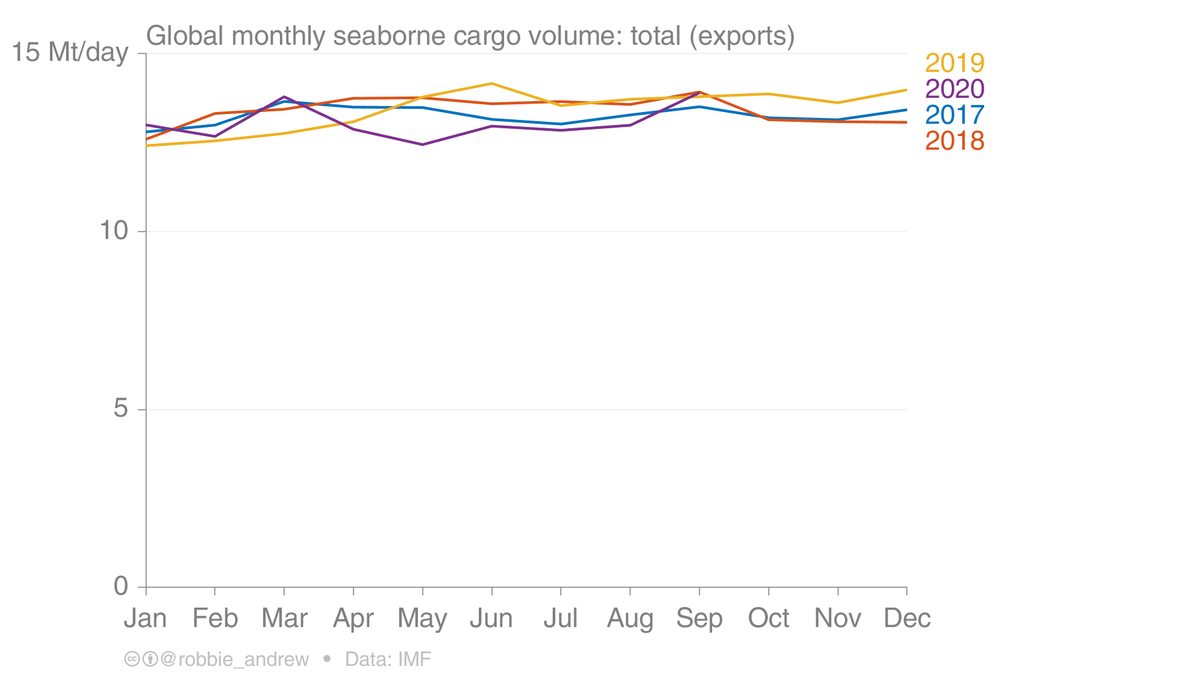
 2/ It's clear that some types of cargo saw significant drops in the peak months of global lockdown, April and May, here vehicles. But this is a small category in terms of weight.
2/ It's clear that some types of cargo saw significant drops in the peak months of global lockdown, April and May, here vehicles. But this is a small category in terms of weight. 